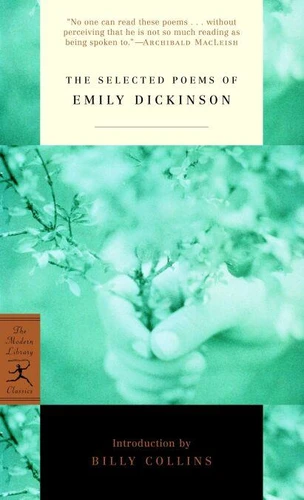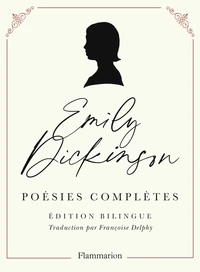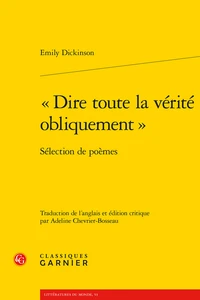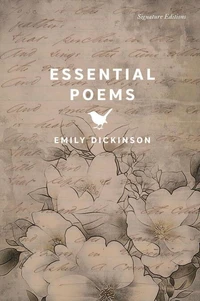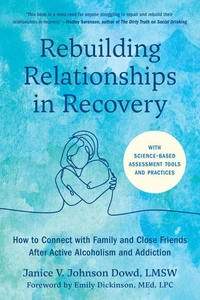The Selected Poems of Emily Dickinson
Par : ,Formats :
Disponible dans votre compte client Decitre ou Furet du Nord dès validation de votre commande. Le format ePub protégé est :
- Compatible avec une lecture sur My Vivlio (smartphone, tablette, ordinateur)
- Compatible avec une lecture sur liseuses Vivlio
- Pour les liseuses autres que Vivlio, vous devez utiliser le logiciel Adobe Digital Edition. Non compatible avec la lecture sur les liseuses Kindle, Remarkable et Sony
- Non compatible avec un achat hors France métropolitaine
 , qui est-ce ?
, qui est-ce ?Notre partenaire de plateforme de lecture numérique où vous retrouverez l'ensemble de vos ebooks gratuitement
Pour en savoir plus sur nos ebooks, consultez notre aide en ligne ici
- Nombre de pages320
- FormatePub
- ISBN978-0-307-82378-6
- EAN9780307823786
- Date de parution22/08/2012
- Protection num.Adobe DRM
- Taille2 Mo
- Infos supplémentairesepub
- ÉditeurModern Library
Résumé
Emily Dickinson lived as a recluse in Amherst, Massachusetts, dedicating herself to writing a "letter to the world"--the 1, 775 poems left unpublished at her death in 1886. Today, Dickinson stands in the front rank of American poets. This enthralling collection includes more than four hundred poems that were published between Dickinson's death and 1900. They express her concepts of life and death, of love and nature, and of what Henry James called "the landscape of the soul." And as Billy Collins suggests in his Introduction, "In the age of the workshop, the reading, the poetry conference and festival, Dickinson reminds us of the deeply private nature of literary art."
Emily Dickinson lived as a recluse in Amherst, Massachusetts, dedicating herself to writing a "letter to the world"--the 1, 775 poems left unpublished at her death in 1886. Today, Dickinson stands in the front rank of American poets. This enthralling collection includes more than four hundred poems that were published between Dickinson's death and 1900. They express her concepts of life and death, of love and nature, and of what Henry James called "the landscape of the soul." And as Billy Collins suggests in his Introduction, "In the age of the workshop, the reading, the poetry conference and festival, Dickinson reminds us of the deeply private nature of literary art."

